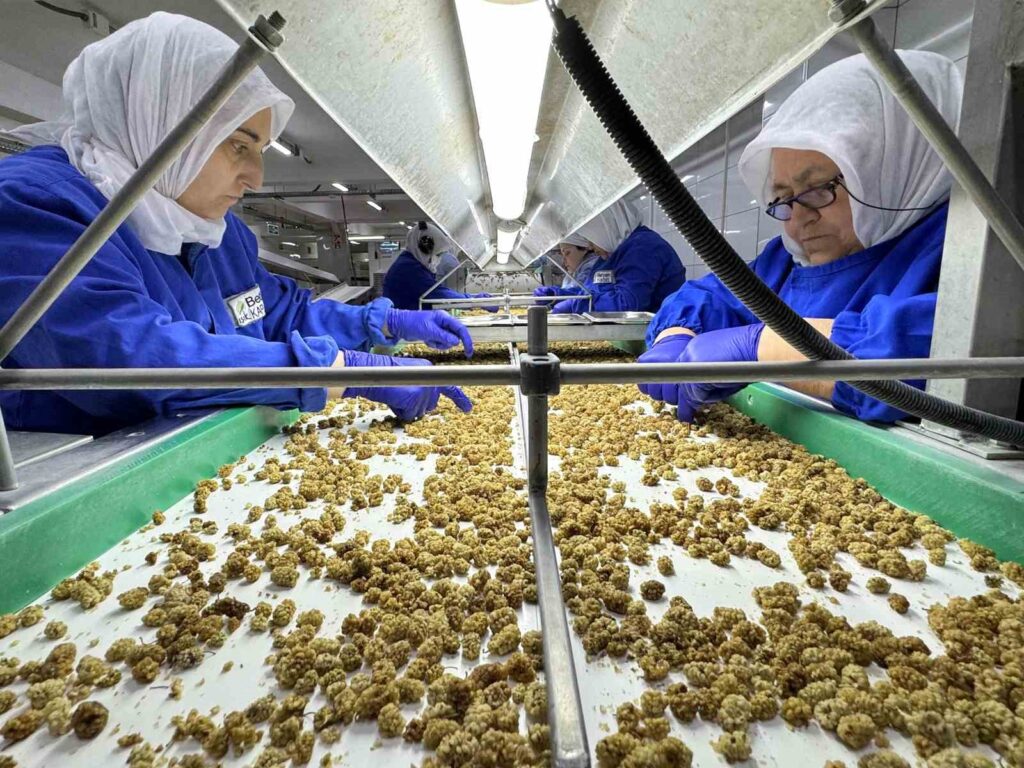President of TZOB Bayraktar: “Irregular rainfall in March, April, and May poses a threat to agricultural production”
Şemsi Bayraktar, the President of the Turkish Chambers of Agriculture (TZOB), stated that ‘Irregular rainfall during the critical periods of March, April, and May, when grains need water the most, poses a threat to agricultural production.’ The President of TZOB emphasized that Turkey needs a more effective agricultural policy to overcome the challenges faced by farmers and ensure food security.

President of the Union of Turkish Agricultural Chambers (TZOB) Şemsi Bayraktar stated that irregular rainfall in March, April, and May, the periods when grains need water the most, poses a threat to agricultural production. Bayraktar also made evaluations regarding the yield estimate for wheat and barley, as well as the expectations for support from farmers for the 2023-2024 production season. He pointed out that irregular rainfall in the spring months and sudden temperature increases negatively affect grain formation in some regions, stating that abrupt temperature changes put plants under stress.
Bayraktar emphasized that with the development of plant varieties adaptable to temperature changes, the impact of temperature stress and yield declines can be prevented. He mentioned that rainfall in April decreased by 70% in the Black Sea Region, 57% in the Mediterranean Region, 54% in the Aegean Region, 53% in the Central Anatolia Region, 46% in the Eastern Anatolia Region, 30% in the Southeastern Anatolia Region, and 24% in the Marmara Region compared to normal. He added that in May, there was a 33% increase nationwide compared to normal and a 5% increase compared to May of the previous year.
Bayraktar further stated that they expect a 15% decrease in barley and an 8-10% decrease in wheat. Due to adverse climatic conditions in the spring, especially in barley yield, a significant decrease compared to the previous year is anticipated. According to the information received from the Agricultural Chambers, it is estimated that the ongoing barley harvest will decrease by approximately 15% from 9.2 million tons to 7.8 million tons, and wheat yield will decrease by 8-10% from 22 million tons to around 20 million tons.
Bayraktar also highlighted that in the free market, prices are lower than the intervention purchase price. He mentioned that barley prices decreased by 7.7% and wheat prices by 6% compared to prices before the intervention purchase price was announced. He provided information that last week, barley prices averaged 7,070 Turkish Liras per ton, bread wheat prices 9,080 Turkish Liras per ton, and durum wheat prices dropped to 9,607 Turkish Liras per ton. Subsequent to the announcement of the intervention purchase price, there was a decrease in wheat prices in the markets by 5% to 13.4% and in barley by 10.7% to 14.8%. Bayraktar expressed concerns that due to the adverse conditions, farmers are forced to sell their products to traders well below the intervention purchase price.
Bayraktar emphasized the need to increase the support payment of 1,750 Turkish Liras per ton for wheat and 750 Turkish Liras per ton for barley in order to eliminate the negative situation and considering the anticipated decrease in yield. He stated that Turkish farmers, despite all adversities, continue to produce sacrificially, and the greatest support they can receive is through well-prepared, long-term agricultural policies that align with field realities in line with the interests of the country and farmers.







